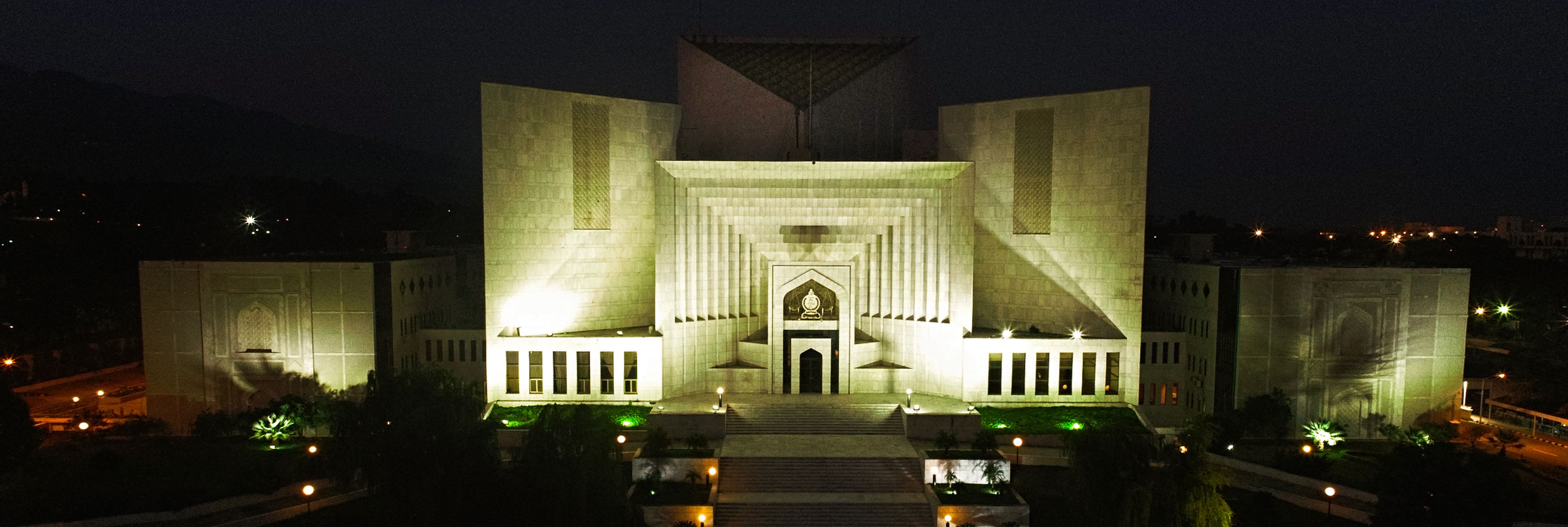The Supreme Court Monday ruled that High Court has no jurisdiction to alter, amend or renegotiate terms and conditions of appointment orders of a government employee saying courts lack jurisdiction to provide unmentioned remedies in the law and constitution.
The top court ruled, “The court was supposed to interpret the law and apply it in letter and spirit and it could not go beyond the law as courts lack jurisdiction to provide remedies which were otherwise not in the law or the constitution by inventing remedies of their own and termed it a dangerous trend which threatened to weaken the very fabric of constitutionalism and rule of law and, this must be discouraged”.
Peshawar High Court had allowed petitions that a number of petitioner filed against their service termination from the posts. Resultantly the High Court issued directives to Secretary Agriculture, Livestock and Cooperative Department Peshawar to restore the petitioners’ service.
In March 03,2020 Khyber Pakhtunkhwa government assailed Peshawar High Court decision before the top court seeking cancelation of the High Court decision in the matter. After hearing both the parties in the matter, a three-member bench of the top court comprising Chief Justice Gulzar Ahmed, Justice Ijazul Ahsan and Justice Munib Akhtar had reserved decision.
Announcing the reserved verdict in response to the provincial government appeal in the matter the bench ruled, “The learned High Court cannot alter, amend or renegotiate the terms and conditions of the appointment orders of the Respondents for the simple reason that it does not have jurisdiction to do so”.
Author judge of the 15-page judgment Justice Ijazul Ahsan said in the verdict, “The high court in all the appeals had applied the principle of similar treatment of similarly placed persons and had found the Respondents eligible for Regularization”. The Judge said that it was settled principle of law that each case turned on its own facts and circumstances.
He further said, “When the record was clearly suggestive of the fact that the respondents could not be regularized, and there were valid and sustainable reasons to do so, the principle of similar treatment of similarly placed employees could not blindly and indiscriminately circumvent the record to regularize those employees who were otherwise not entitled to regularization”.
The judgment noted that further, some judgments were mechanically rendered without examining the specific facts and circumstances of individual cases by relying on earlier judgments directing regularization and those too in incorrect and erroneous basis. This, by itself, furnished justification to set aside such judgments. It added that even otherwise, the rule of similar treatment for similarly placed persons has wrongly and incorrectly been applied in the instant cases.
It has been stated in the verdict that respondents conceded themselves before High Court and Supreme Court as they were employed in various projects on temporary basis under Project Policy. The verdict said that such Project Policy specifically provided that ex-project employees could not claim regularization and that the posts in questions would be filled as per the rules of the KPPSC or the DSC.
“We are therefore of the view that the learned High Court has erred in law in ignoring the Project Policy and ordering regularization of the respondents without relying on any statutory instrument which may have created a right in their favour”, the bench said in its verdict.
While explaining the aspect of discretionary jurisdiction of the High Court, the author judge made it clear that discretionary jurisdiction under Article 199 of the Constitution cannot be exercised in a vacuum, adding it must be grounded on a valid basis of violation of specific and enforceable legal or constitutional rights. The judge said that the discretion must be exercised in a structured and calibrated manner with due regard to parameters put in place by the Constitution as well as by this Court.
The top court ruled that judgments of the High Court in hand were unfortunately lacking the mentioned principles due to which found unsustainable. Citing the provincial law officer arguments in the verdict the top court noted that all of the respondents were appointed on temporary posts as stipulated in their employment contracts, the top court noted that the High Court didn’t advert to this aspect of the case and has simply applied the principle of similarly placed employees to give relief to the respondents.
The top court said that it has been specifically mentioned in the appointment orders of the respondents that they cannot claim regularization and further. Whereas they are employed on contract for a specific period of time.
Concluding the verdict the top court ruled, “ The Court cannot go beyond what the law is, and what interpretation permits – Courts lack jurisdiction to provide remedies which are otherwise not in the law or the Constitution by inventing remedies of their own – This is a dangerous trend which threatens to weaken the very fabric of constitutionalism and rule of law and, this must be discouraged – The learned High Court cannot alter, amend or renegotiate the terms and conditions of the appointment orders of the Respondents for the simple reason that it does not have jurisdiction to do so”.


